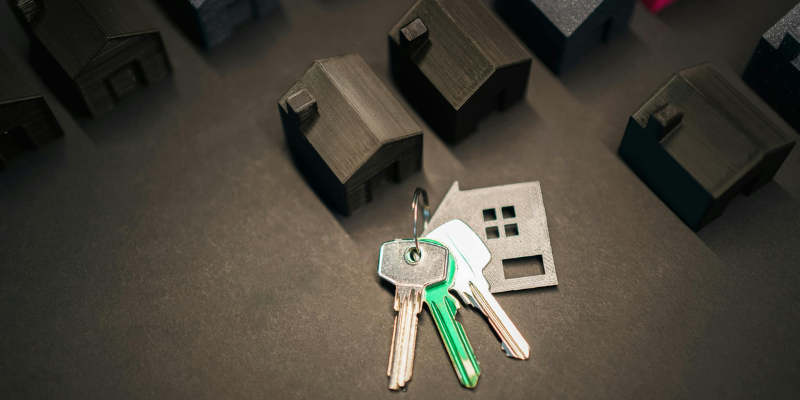
Understanding Squatter Rights and Laws in Virginia
Understanding squatter rights and laws in Virginia is crucial for homeowners facing the challenge of selling a property occupied by unauthorized individuals. Squatters, or individuals occupying property without the owner’s permission, can present significant legal challenges.
In Virginia, squatters may gain certain legal rights through adverse possession if specific conditions are met. To claim adverse possession, squatters must occupy the property openly, notoriously, continuously, and exclusively for a period of 15 years.
This means they must live on the property in a manner that is obvious to others and without any interruption from the rightful owner. Virginia law requires these elements to be proven in court for squatters to gain ownership rights legally.
Homeowners dealing with squatter issues should familiarize themselves with these legal nuances and consider seeking legal advice to understand their options fully. Taking prompt action against unauthorized occupants can prevent squatters from establishing claims under adverse possession laws, ultimately influencing the sale process of the home in question.
If you’re looking to sell despite squatter complications, 4 Brothers Buy Houses in Virginia can help streamline the process and connect you with real estate solutions tailored to challenging situations.
How Squatters Impact Property Value in Virginia
Squatters can significantly impact property value in Virginia by creating a range of challenges for homeowners looking to sell. The presence of squatters often leads to legal complications, which can deter potential buyers and reduce the marketability of the home.
Squatted properties may suffer from neglect or damage, further decreasing their appeal and valuation. This situation is exacerbated by the expenses associated with eviction processes in Virginia, which can be lengthy and costly, affecting the overall financial attractiveness of selling the property.
Additionally, homes with squatter issues might develop a negative reputation in the local real estate market, complicating sales efforts and potentially leading to lower offers from buyers who perceive higher risks. Addressing these squatting challenges swiftly is crucial for sellers aiming to maintain or enhance their property’s value in Virginia’s competitive real estate environment.
Legal Steps to Evict a Squatter Before Selling
When selling your home for cash in Virginia and the surrounding area, dealing with squatters can be a significant challenge that requires careful legal action to resolve. The first step in evicting a squatter is to determine whether the individual has any legitimate claim to the property.
If not, Virginia law typically categorizes them as unlawful occupants. Homeowners must then serve a formal “Notice to Quit” to inform the squatter of their required departure from the premises.
This notice usually provides a specified period for the squatter to vacate voluntarily. If the squatter refuses to leave after this period, homeowners need to file an unlawful detainer lawsuit in the local district court.
This legal action will lead to a court hearing where you must present evidence confirming your ownership and lack of permission granted for residency. Once the court issues an eviction order, you can coordinate with local law enforcement for its enforcement, ensuring that removal proceeds smoothly and legally.
Throughout this process, it is crucial to adhere strictly to Virginia’s landlord-tenant laws and procedures, potentially seeking guidance from a real estate attorney specializing in such matters to avoid delays or complications when preparing your home for sale.
Evaluating Your Options: Selling a House with a Squatter

When facing the challenge of selling a house in Virginia occupied by a squatter, it’s crucial to carefully evaluate your options to navigate this complex situation effectively. Understanding Virginia’s landlord-tenant laws is fundamental, as they dictate the legal process required to remove squatters.
Consulting with a real estate attorney can provide clarity on your rights and obligations, ensuring you adhere to the proper legal procedures for eviction. It’s important to consider whether negotiating directly with the squatter might expedite their voluntary departure, potentially saving time and court expenses.
Offering financial incentives for relocation could be an effective strategy if handled delicately. Additionally, assessing the local real estate market will help determine how much a squatter presence might impact your property’s value and attractiveness to potential buyers.
Collaborating with an experienced real estate agent who understands these nuances can guide you in pricing your home competitively while managing buyer expectations regarding occupancy status.
Common Challenges in Selling Homes with Unauthorized Occupants
Selling a home in Virginia can become significantly complicated when unauthorized occupants, often referred to as squatters, are involved. One of the primary challenges is the legal process required to remove these squatters.
Virginia laws necessitate that homeowners follow specific legal eviction procedures, which can be time-consuming and costly. Additionally, potential buyers might be deterred by the presence of unauthorized occupants, affecting the property’s marketability and reducing its overall appeal.
There is also the risk of property damage, as squatters may not maintain the home properly, leading to increased repair costs. Furthermore, verifying occupancy status can be difficult if squatters claim tenancy rights or present fraudulent lease documents.
These complexities create uncertainty and stress for sellers trying to navigate the real estate market while dealing with unauthorized inhabitants in their homes. If you’re facing these challenges and need guidance, reach out to 4 Brothers Buy Houses for assistance with resolving squatter issues and moving forward with your home sale.
Legal Considerations for Sellers of Squatter-occupied Homes
When selling a home in Virginia that is occupied by squatters, it is crucial for homeowners to navigate the legal landscape carefully. Understanding the nuances of state laws governing adverse possession and tenants’ rights is essential to addressing squatter challenges effectively.
In Virginia, property owners must initiate formal eviction proceedings if squatters refuse to vacate voluntarily. This involves filing an unlawful detainer action in court, which can be time-consuming and may require the expertise of a real estate attorney familiar with local ordinances and statutes.
Additionally, sellers should ensure they have clear documentation of ownership and any communications with the squatters to strengthen their case during legal proceedings. It is also advisable for sellers to consult with legal professionals who specialize in real estate law to explore options such as cash-for-keys agreements, which might expedite the process and help avoid lengthy litigation.
Understanding these legal considerations helps sellers protect their property rights while ensuring compliance with Virginia’s housing laws during the sale process.
Financial Implications of Selling a House with a Squatter
Selling a house in Virginia that has a squatter can present numerous financial challenges for homeowners. The presence of squatters often deters potential buyers, which can significantly reduce the property’s market value.
Squatters can cause damage to the property, leading to costly repairs that sellers must address before listing the home. Legal procedures required to evict squatters in Virginia can be both time-consuming and expensive, involving court costs and attorney fees.
Additionally, prolonged eviction processes may extend the time the property stays on the market, delaying the sale and potentially increasing holding costs such as mortgage payments, insurance premiums, and property taxes. These financial implications can strain sellers’ budgets and complicate their plans to move forward with new real estate endeavors.
Negotiating with Buyers When Selling a Squatter-occupied House

When selling a property in Virginia that is occupied by squatters, negotiating with potential buyers can be particularly challenging but crucial for a successful transaction. Buyers may have concerns about the legal complexities and potential delays associated with removing squatters, which can impact their willingness to make an offer or agree to your asking price.
It’s essential to address these concerns upfront by being transparent about the situation and any steps you’ve taken to resolve it. Providing documentation of any ongoing legal proceedings or agreements with the squatters can help reassure buyers.
Additionally, offering incentives such as reduced closing costs or a slightly lower sale price might make the deal more attractive despite the property’s current occupancy issues. Engaging with real estate professionals experienced in dealing with squatter-occupied properties can also be beneficial, as they can provide guidance on how best to negotiate terms that are fair and appealing to both parties while ensuring compliance with Virginia’s property laws.
Navigating the Closing Process for Occupied Properties
When selling a home in Virginia that’s occupied by squatters, navigating the closing process can be particularly challenging. It’s crucial to understand both legal and logistical aspects to ensure a smooth transaction.
First, verify the squatter’s rights and gather all necessary documentation proving your ownership of the property. Collaborating with experienced real estate professionals who are familiar with Virginia’s specific laws on occupied properties is essential.
They can guide you through potential legal proceedings if eviction becomes necessary before closing. Simultaneously, maintain clear communication with potential buyers about the situation, as transparency is key to avoiding last-minute surprises that could delay or derail the sale.
Additionally, consider negotiating terms that might make the property more appealing despite its occupancy status, such as offering a price reduction or agreeing to cover some closing costs. Ensuring that title insurance will protect against any claims related to the squatters is also vital during this phase.
Taking these proactive steps can help mitigate risks and facilitate a successful closing process for homes affected by squatter challenges in Virginia.
Can You Kick Out a Squatter in Virginia?
If you’re thinking about selling your house in Virginia, dealing with squatters is the last problem that you would want to face. Homeowners must be well-informed with respect to the legal framework within which these “uninvited guests” can be removed from the premises.
No squatter may simply be kicked out without following specific processes as set out by law. It becomes vital for homeowners to evaluate whether the individual fits the description of a squatter under Virginian legislation, who usually occupies and lives in the place continuously for some time.
To begin eviction proceedings, landowners need to initiate an unlawful detainer action as described above with appropriate evidence of ownership and proof that the squatter has no right to reside on such property. Following this prescribed route is essential because resorting to positive mitigation measures could backfire legally.
Ownership-related disputes like those concerning adverse possession and unlawful detainers require specialized attention; thus, one needs to consult a real estate lawyer. Proper planning enables the removal of squatters from homes with minimal hassles when making sales in Virginia.
Can You Put Up Your House For Sale If A Squatter Resides on Your Property?
Squatters can indeed make selling a house in Virginia particularly troublesome, although challenging does not mean impossible. It is important to understand how the law works concerning squatters and property disputes in Virginia.
Attempting to sell such an occupied property often proves worthless unless some form of settlement or agreement is reached regarding the matter at hand. This may include either filing for eviction or seeking some form of legal counsel concerning adverse possession claims.
After taking care of these matters, one can reasonably expect to proceed with settling their home as they see fit. While selling, it’s always good manners to inform potential buyers about lingering squatter problems so that all matters are dealt with during the sale, transparency is maintained, and no one feels shortchanged.
Consulting with a real estate attorney experienced in handling squatters can provide valuable guidance and ensure compliance with state regulations, ultimately facilitating a smoother sale of your Virginia home. If you’re looking for a fast solution, cash home buyers in Washington, DC, and nearby cities may be able to purchase your property quickly, even with a complicated occupancy history.
Your House, Your Squat: How Long Does It Take?

In Virginia, there is a legal concept known as adverse possession, or “squatters’ rights,” which details how squatters can claim ownership of a property. In Virginia, a squatter has to occupy the house for at least 15 continuous years and meet five other requirements, which include openly occupying the property in a hostile manner exclusive to the owner’s interest.
This means that the so-called squatter must utilize the house as their own without any consent from the actual possessor. For homeowners who want to sell their homes located in Virginia, addressing issues related to squatters needs to be done at the earliest possible time in order for them not to get themselves into dire legal situations due to long occupancy without permission.
Knowing how laws on adverse occupation function can allow sellers to act quickly and adequately to keep squatters from laying claims on their homes. These risks can be mitigated by brisk legal action with real estate lawyers, ensuring these transactions happen smoothly while selling properties.
What Is Virginia’s Law of Squatters?
In order for homeowners to leave and sell their home, understanding squatters’ rights law in Virginia, also known as adverse possession, is key. In Virginia, squatters’ rights allow an individual who occupies a property without the owner’s permission to potentially regain some ownership after a lengthy time period of occupying the property.
For a squatter to successfully claim adverse possession in Virginia, there are certain criteria that must be met: they must openly and notoriously occupy the property continuously for 15 years, exclusive of any shared control, and under some form of claim or color of title. This stipulation requires that the squatter utilize the space as their own and may even pay taxes on the lease during this timeframe.
Homeowners dealing with challenging squatters should know that unaddressed issues may create difficulties while selling the house down the line. To make sure that potential claims are resolved before listing the home for sale, it is best to work with a real estate lawyer who understands laws on adverse possession in Virginia.
Do you need to sell your house? Maybe you want to avoid expensive repairs, prefer a hassle-free sale, or just sell quickly. 4 Brothers Buy Houses can help you. We provide fair cash offers and take care of all the details so that the process is seamless for you. Have questions or ready to sell? Call us at 202-601-4928 for an amazing no-obligation offer. Start today!
Helpful Virginia Blog Articles
- Best Season For Selling Your Home In Virginia
- Your Home’s Protection Against Hospital Liens In Virginia
- Quickly Sell Your Virginia Home And Relocate Stress-free
- Squatter Challenges When Selling Your Virginia Home
- Essential Guide To Short Selling Your House In Virginia
- Can My Spouse Legally Sell Our Home In Virginia Without Consent
- Selling A Hoarder House In Virginia’s Real Estate Market
- Closing Fees Without An Agent In Virginia
- Sell My Flooded House In Virginia
- Selling An Estate Home In Virginia

| SQUATTERS’ RIGHTS | HOSTILE POSSESSION | NOTORIOUS POSSESSION | OPEN AND NOTORIOUS | ADVERSE POSSESSOR | ADVERSELY POSSESSED |
| RICHMOND, VA | RICHMOND , VIRGINIA | RICHMOND | RICHMOND, VIRGINIA | EVICTED | VIRGINIA BEACH |
| LEGAL COUNSEL | LAWYERS | LEGAL TITLE | INSURANCE AGENCY | INSURANCE AGENCIES | INSURANCE COMPANY |
| LEASE AGREEMENT | TRESPASSER | TRESPASSING | TRESPASSING | LEGAL BATTLE | GOOD FAITH |
| SHERIFF | CRIMINAL ACTS | CRIMINAL | CRIMINAL OFFENSE | RENTAL PROPERTY | RENTER |
| QUIET TITLE | COMPLAINT | THE UNITED STATES | AMERICA | SECURITY | EXCLUSIVE POSSESSION |
| FENCING | CONSENT | COMPANY | PROCESS SERVER | JUDGMENT | FREQUENTLY ASKED QUESTIONS |
| DEBRIS | CRIMINAL CHARGES | SECURITY CAMERAS | THE BURDEN OF PROOF | BURDEN OF PROOF | ATTENTION |
| ARIZONA | ALABAMA | AN ADVERSE POSSESSION | THE PROPERTY IS | VIRGINIA ADVERSE POSSESSION | SQUATTERS RIGHTS IN |
| NO TRESPASSING SIGNS | RICHMOND, VIRGINIA | IN THE PROPERTY | IN VIRGINIA THE | IN VIRGINIA SQUATTERS | THE PROPERTY FOR |
| FOR ADVERSE POSSESSION | AND NOTORIOUS POSSESSION | OPEN AND NOTORIOUS | THE PROPERTY OWNER | IN VIRGINIA IF | PROPERTY FOR 15 |
| AN ADVERSE POSSESSION CLAIM | MAKE AN ADVERSE POSSESSION | SQUATTERS RIGHTS IN VIRGINIA | IN VIRGINIA A SQUATTER | VIRGINIA, A SQUATTER | VIRGINIA A SQUATTER MUST |
| GAIN LEGAL OWNERSHIP OF | THE PROPERTY FOR 15 | OCCUPY THE PROPERTY FOR |
